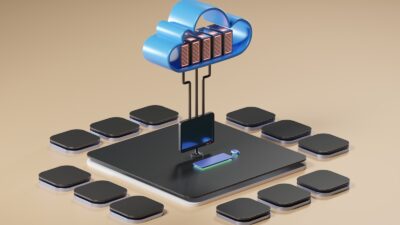How Edge Computing is Empowering UAE Businesses with Greater Autonomy
In the UAE, where technological innovation is a driving force, businesses are increasingly seeking ways to reduce their Cloud Dependency. Enter edge computing, a decentralized computing paradigm that is revolutionizing the way data is processed and managed. By bringing computation closer to the data source, edge computing not only reduces latency and bandwidth usage but also empowers businesses with greater autonomy and control over their data.
Understanding Cloud Dependency and Its Challenges
Cloud computing has undoubtedly revolutionized the way businesses operate, offering scalability, flexibility, and cost-effectiveness. However, relying solely on cloud-based processing can present challenges. These include issues with latency, as data needs to travel to and from centralized cloud servers, potentially causing delays in real-time applications. Additionally, businesses might experience limited control over their data and potential security concerns when sensitive information is processed in a shared cloud environment. Moreover, the cost of transmitting and storing large volumes of data in the cloud can become a significant expense.
Edge Computing: A Decentralized Solution
Edge computing addresses these challenges by processing data closer to its source, at the “edge” of the network. This could be on local servers, gateways, or even on the devices themselves. By decentralizing data processing, edge computing reduces latency, as data doesn’t have to travel long distances to reach a centralized cloud. This is particularly beneficial for applications that require real-time or near-real-time processing, such as industrial automation, smart city systems, and autonomous vehicles.
The Advantages of Reduced Cloud Dependency
Reducing cloud dependency through edge computing offers several advantages for businesses in the UAE. Firstly, it enhances operational efficiency by minimizing latency and ensuring faster data processing. This translates to quicker decision-making and improved responsiveness to customer needs. Secondly, it improves data security and privacy by processing sensitive data locally, reducing the risk of data breaches during transmission. Thirdly, it can lead to cost savings by reducing the need for expensive bandwidth and cloud storage resources.
Empowering Businesses with Greater Autonomy
One of the most significant advantages of edge computing is that it empowers businesses with greater autonomy and control over their data. By processing data locally, businesses can make decisions and take actions based on real-time insights without relying on the availability and responsiveness of cloud services. This is particularly important for businesses operating in remote or underserved areas with limited connectivity to the cloud.
Use Cases for Edge Computing in the UAE
The UAE is witnessing a growing adoption of edge computing across various industries. In the oil and gas sector, edge computing is being used to monitor and control remote equipment, optimize production processes, and ensure worker safety. In the healthcare sector, edge computing is enabling real-time patient monitoring, faster diagnosis, and personalized treatment plans. In the retail sector, edge computing is powering smart stores with personalized recommendations, seamless checkout experiences, and efficient inventory management.
The Future of Edge Computing in the UAE
The future of edge computing in the UAE looks promising. As technology continues to advance, edge devices are becoming more powerful and affordable. The rollout of 5G networks is further enhancing the capabilities of edge computing by providing the high bandwidth and low latency required for real-time data processing. With the government’s support and initiatives like the Dubai Smart City project, edge computing is poised to play a pivotal role in the UAE’s digital transformation journey, empowering businesses with greater autonomy, efficiency, and innovation.
Building a Resilient and Scalable Edge Infrastructure
To fully capitalize on the benefits of edge computing, businesses in the UAE need to invest in building a resilient and scalable edge infrastructure. This involves deploying a distributed network of edge devices, gateways, and servers that can handle the growing volume and variety of data. It also requires implementing robust security measures to protect edge devices and data from cyber threats. Businesses can leverage the expertise of technology partners and service providers to design and implement edge computing solutions that meet their specific needs and requirements.
Collaboration and Innovation in the Edge Computing Ecosystem
The success of edge computing in the UAE will depend on collaboration and innovation within the ecosystem. Government agencies, businesses, academic institutions, and technology providers need to work together to develop standards, best practices, and regulatory frameworks that promote the adoption and growth of edge computing. By fostering a collaborative environment, the UAE can create a thriving edge computing ecosystem that drives innovation, economic growth, and societal development.
#edgecomputing #clouddependency #UAE #dataprocessing #latency #bandwidth #costefficiency #scalability #digitaltransformation























